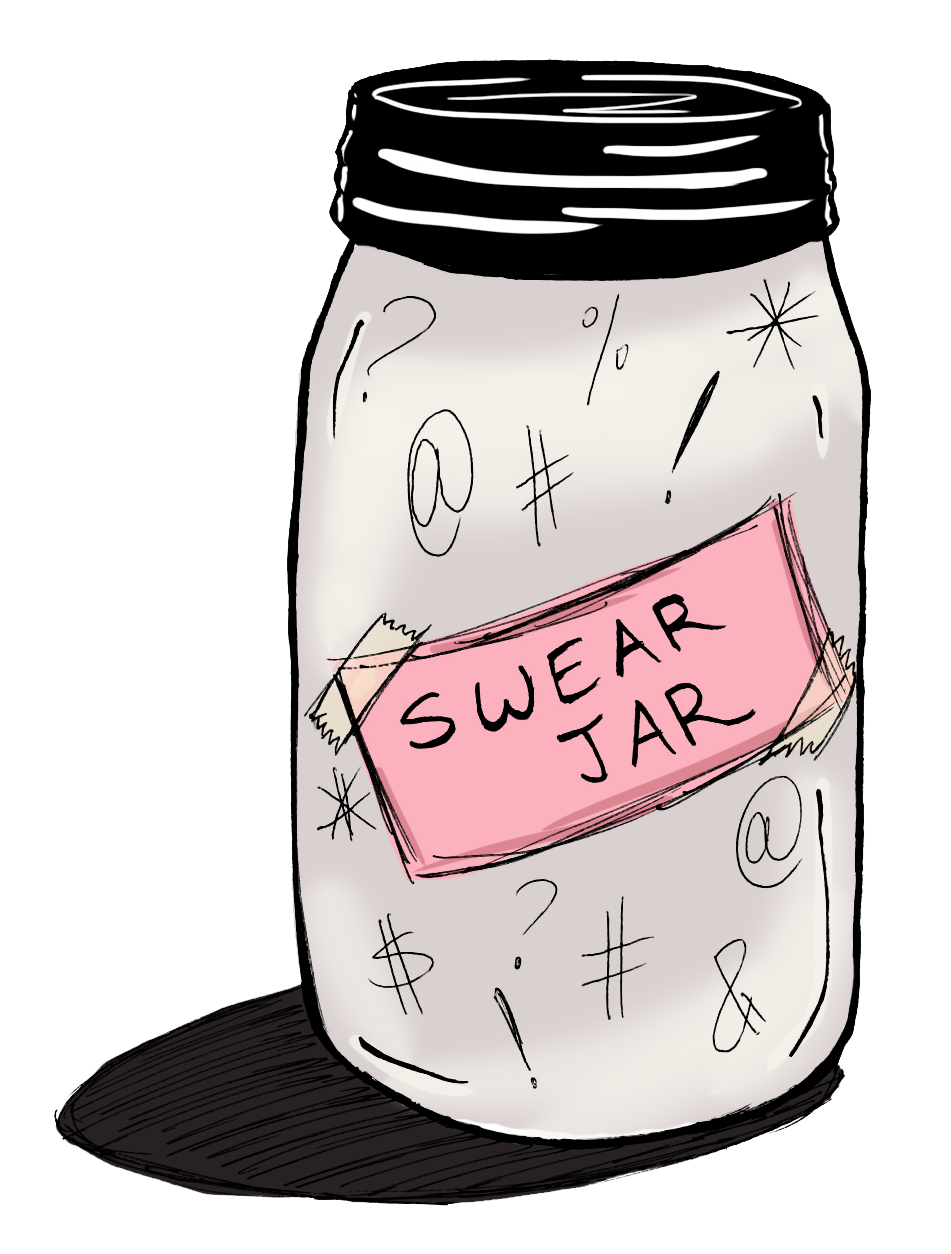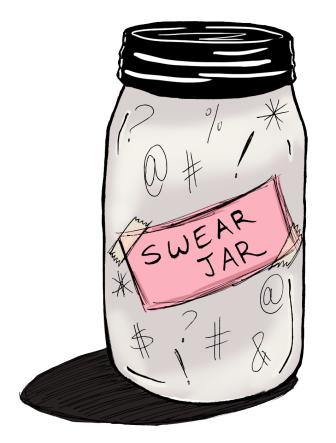

History and AP government teacher Scott Silton keeps a swear jar for himself in his classroom.
“It’s sort of an informal way for me, if I inadvertently blurt a swear word, I put a dollar into the swear jar,” Silton says. “It’s a way to signal to the students that I’m discouraging [swearing] without making a big fuss.”
According to Aragon’s Behaviors for Learning guidelines, “Respectful Language” is one of four targets students must display in order to create a positive learning environment. Unlike students, however, teachers are not necessarily given the same explicit rules against profanity in class.
Aragon drama and tech theater teacher Shane Smuin says, “The official policy is ‘you shouldn’t curse.’ … Some teachers swear in class because that’s what they do in their personal lives.”
The use of swearing and profanity can range from casual to offensive. For teachers, the line between appropriate and inappropriate language can be hazy. Sophomore Wayne Su says, “If teachers can pull [swearing] off as comedic or casual, then I think they should be able to swear. They shouldn’t swear at a student or say anything that insults people, though.”
Although it’s rare to find a teacher who will cuss out specific students, some teachers make the occasional outburst of profanity in the classroom. Smuin says, “[Swearing in class] is a bad habit, me included. I have developed this bad habit. I should stop. I freely admit I should stop.”
Yet, swearing in class doesn’t necessarily mean acting vulgar or offensive. Junior Danya Sandler says, “Swearing can be really powerful in language. In AP English, there are swear words in the books, and we use swear words in our discussions because it helps us convey the power and emotion of the text. You should swear with meaning.”
Profanity can also help add a sense of familiarity between teachers and students. According to an article by Timothy Jay and Kristin Janschewitz of The Observer, people who swear can be perceived to be more honest and trustworthy. Although these observations have not been scientifically validated, trends between swearing and perception can be seen at Aragon.
Su’s observations echo these findings. He says, “People who swear seem more honest and real. I feel more connected to teachers who swear.”
To some, like senior Brian Yee, teachers who swear pique interest and provide a break from the conventional academic tone of the class. Yee says, “[Swearing] adds a little drama to the class, so people listen and pay attention. Everyone seems to wake up when the teachers says a bad word.”
As a drama teacher, Smuin finds it hard to censor himself in class.
“For the art form I’m teaching, you have to be so personal and honest that not swearing in class is tricky,” he says. “Swearing in class is not good … but I think honesty is the thing that I focus on the most.”

While swearing in class may add beneficial elements to the learning environment, it may also take away from the conventional classroom atmosphere. Smuin says, “It’s not professional. Some people can be offended by it, and for those students, I am truly sorry. I don’t mean to offend anybody.
Su adds, “It’s fun when teachers swear in class because it’s different from what they normally act like, but you have to remember that just because they swear, [that] doesn’t mean that we’re all on the same level. They’re still the teacher and you still have to respect them.”



